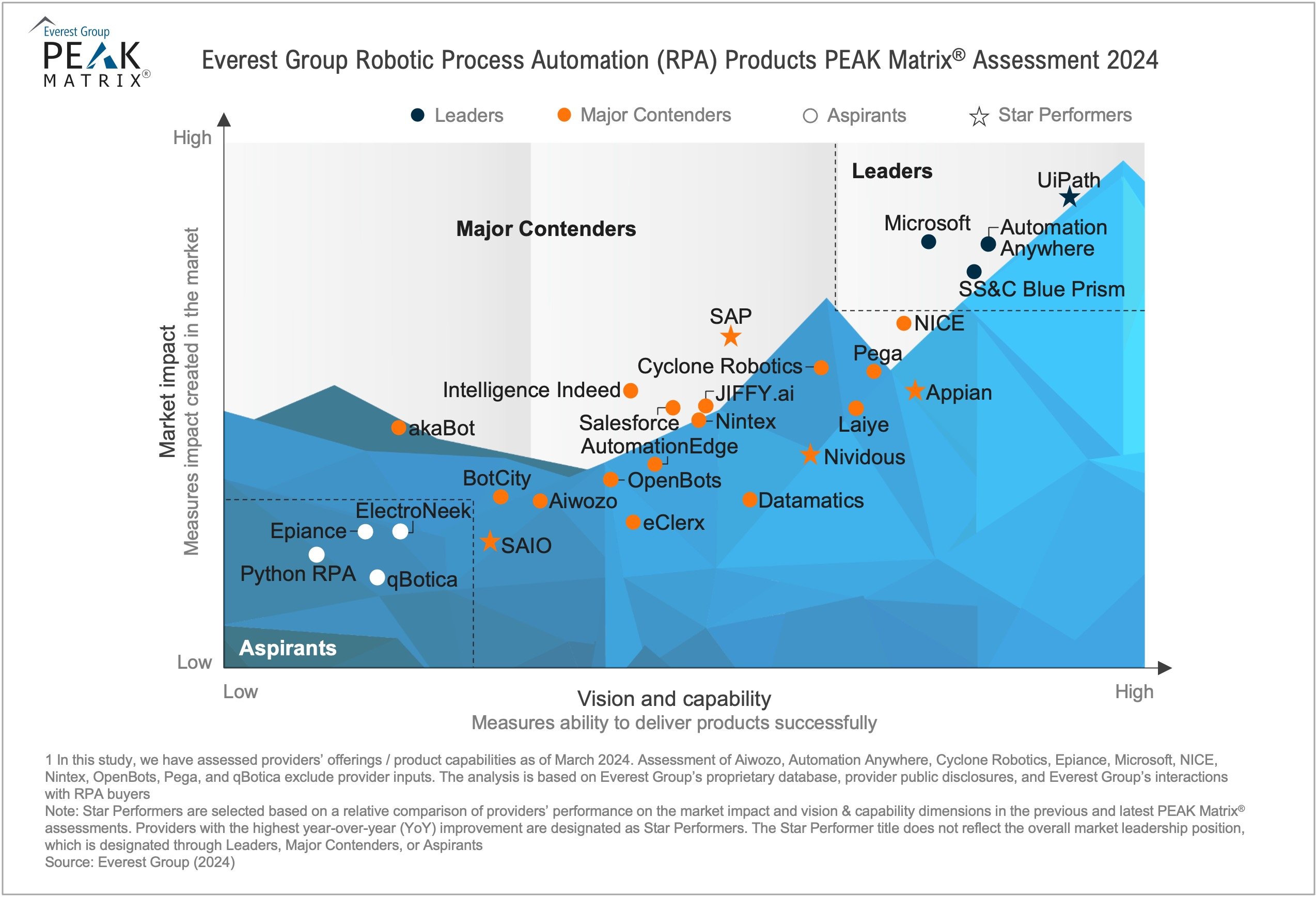Organizations are turning to automation to redesign business processes and boost operational efficiency in the face of a global economic slowdown, geopolitical complexities, and ongoing talent shortages.
Intelligent automation platforms now drive end-to-end process automation, incorporating new technologies – such as intelligent document processing, process mining, digital interaction intelligence, task mining, API-based automation, process orchestration, and conversational AI – to enhance efficiency and Robotic Process Automation (RPA) outcomes.
Furthermore, generative AI revolutionizes automation by handling complex cognitive tasks and empowering citizen developers to build and deploy bots, integrating business users into the automation process.
Enterprises benefit from RPA through better operational efficiency, improved customer and employee experiences, and strategic workforce engagement. Enterprises, GBS organizations, and providers across industries are investing heavily in RPA, making it a top-growing software market.
In this report, we study 27 RPA technology providers and position them on Everest Group’s PEAK Matrix®, categorizing them as Leaders, Major Contenders, and Aspirants based on their capabilities and offerings. The research will help buyers select the right-fit technology providers for their needs, while technology providers will be able to benchmark themselves.

Scope
All industries and geographies
Contents
This PEAK Matrix® report examines:
- Everest Group’s PEAK Matrix® evaluation of RPA technology providers and their categorization into Leaders, Major Contenders, and Aspirants
- The RPA technology provider market’s competitive landscape
- Key RPA technology trends
- Each RPA technology provider’s key strengths and limitations
Membership(s)
Service Optimization Technologies (SOT)
Sourcing and Vendor Management